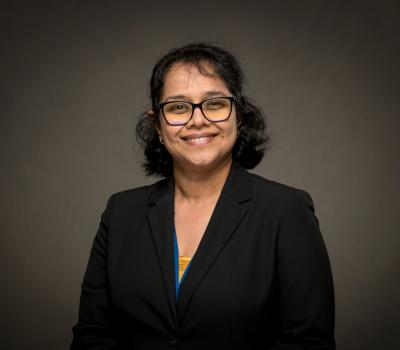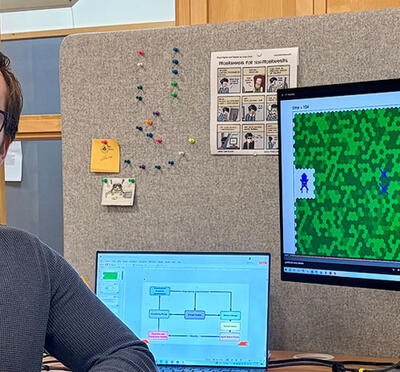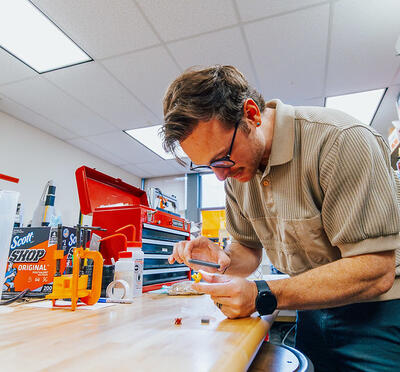Before she entered Oregon State University in computer science, Susmita Padala had just one web development course and a few quick lessons from her dad about computer programming.
“I felt very inadequate,” Padala said.
As she worked with classmates, she realized that they had a lot more experience and knowledge than she did.
“There were definitely times during my first year when I thought, ‘Maybe this isn't the major for me,’” she said.
In her second year, through a fellowship from the College of Engineering, she was connected with Anita Sarma, associate professor of computer science, to do a research project in human computer interaction.
“I was really inspired by the research, and it gave me a purpose to be in computer science and push through the challenges,” Padala said.
The ultimate aim of her research is to improve open-source tools and infrastructure to be more inclusive of different problem-solving styles. Women are underrepresented in the open-source development community and the initial steps of the research were to identify what contributes to that lack of diversity. Her research has shown that open-source software development tools favor problem-solving styles that are more typical of men. They identified a gender bias in more than 70 percent of the tool issue cases they examined with GenderMag, a method to analyze software tools developed at Oregon State.
Sarma was impressed by Padala’s astute insights when they first met to discuss a research paper. Padala has since shown she is hardworking and creative. Her leadership skills became evident as she led the team that designed and conducted user studies at IBM and the Open Source Lab at Oregon State.
The lab also gave her the opportunity to interact with a broader group of peers including collaborators from Distinguished Professor Margaret Burnett’s lab. It became more than a place to do research. The mentorship of Sarma and Burnett and the camaraderie of her fellow researchers was an important source of support.
Padala has excelled beyond what she imagined from her uncertain beginning in computer science. She is co-author on a published research paper and lead author on another that has been submitted for publication. Last year, she was awarded the Adobe Research Women-in-Technology scholarship, which recognizes outstanding female students throughout the world.
The scholarship led to an internship with Adobe, another transformational experience for Padala. In a departure from the pure research she was doing at Oregon State, Padala had the opportunity to work on product development at Adobe. She worked with research and design teams on a data visualization prototype. The experience inspired her to apply to graduate school, something she hadn’t considered before.
“It really opened my eyes to other opportunities, and I was able to meet a lot of new people,” Padala said.
Padala is driven by her interest in improving the human experience with computers. She founded and serves as president for a club to empower people with disabilities to pursue STEM education and create a more inclusive environment in engineering. This club, the Adaptive Technology Engineering Network, hosted a workshop for middle and high school students that was featured in the Corvallis Gazette-Times in January. The club also won first place for its work at PechaKucha, a competition for engineering student projects hosted by the School of Mechanical, Manufacturing and Industrial Engineering.
“I think computer scientists are starting to realize that we've built all these amazing algorithms and tools,” Padala said. “But now the question is: How can we make these tools and algorithms work better for humans? Technology can be empowering, but at the same time it can create barriers.”




